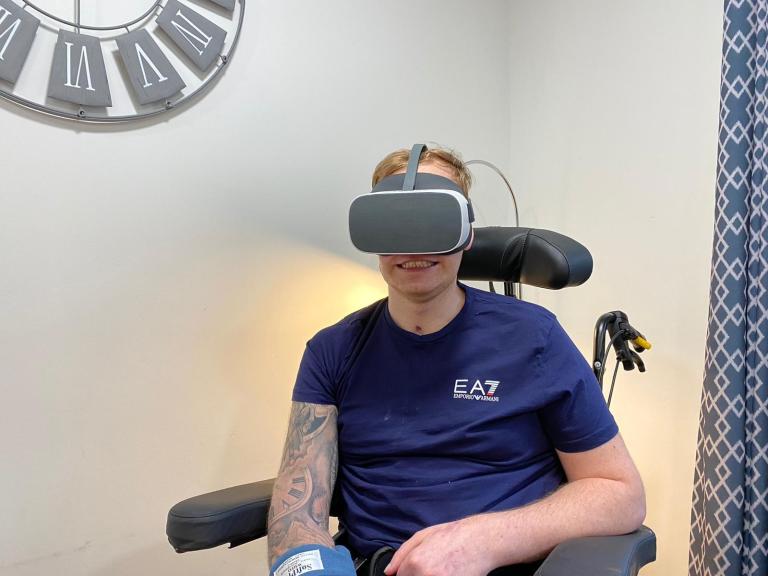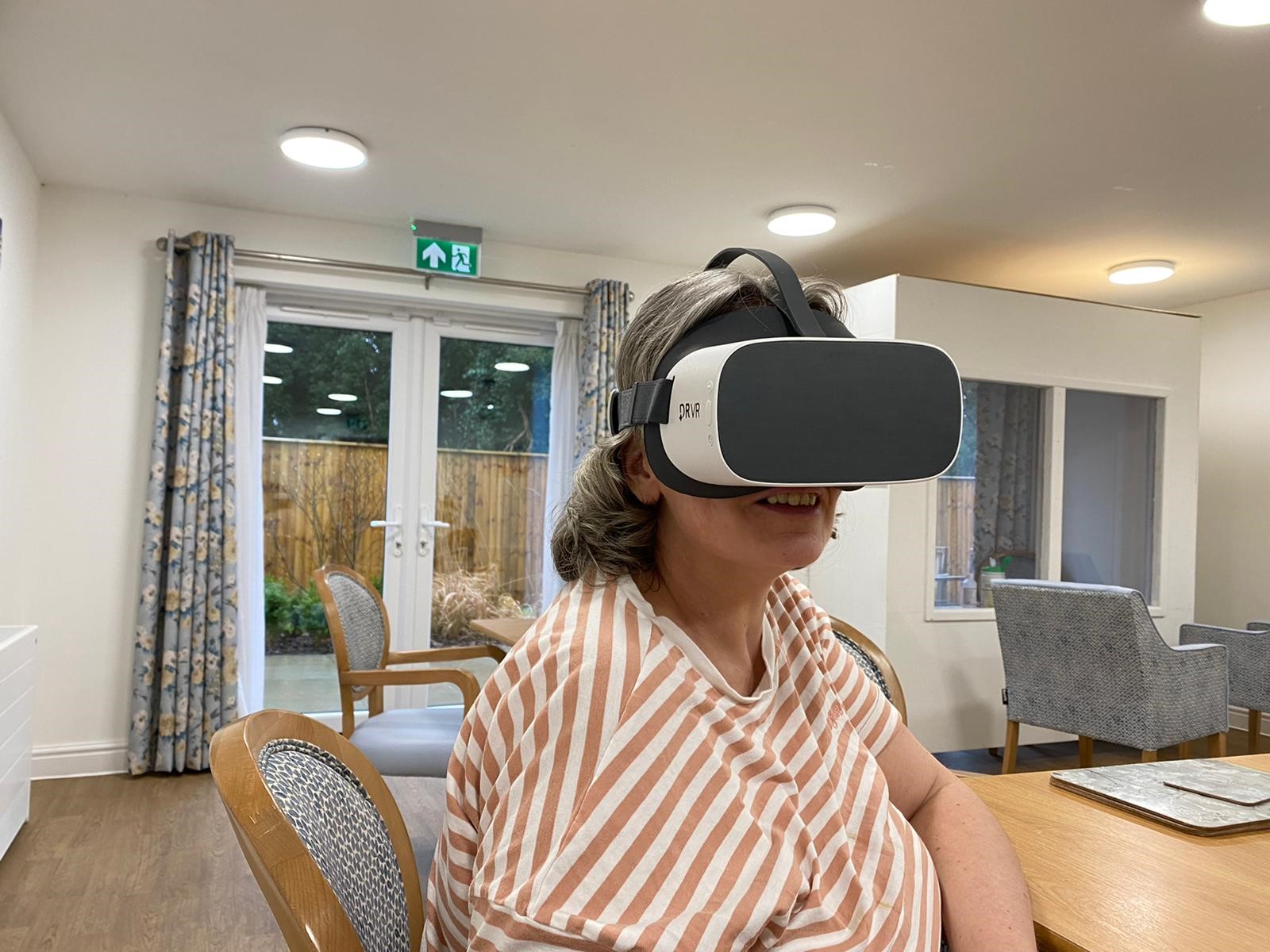Virtual reality therapy improves lives of care home residents
1 February 2021

Having fun in the snow and touching the clouds are some of the ways that residents at our Ribble View care home in Preston are using virtual reality technology to relax during lockdown.
The team at Ribble View, alongside experts from Rescape Innovation, have been using virtual reality (VR) technology to support therapy sessions at the care home in Preston. This is part of Exemplar Health Care’s commitment to investing in the latest life-enriching technology to make every day better for our people.
Over the past few months, the Therapy Team at the home has been working with individuals to explore their likes and interests, and tailoring the VR experience to their personal choices.
Individuals can choose from a range of pre-loaded films that are shot in 360 degrees, so that once the headsets are placed over their eyes, they can be fully immersed into a ‘virtual world’.
Lindsay Abraham, Home Manager at Ribble View, shares: “Before we begin a session, we talk to the individual to find out what they like.
“If someone’s a keen traveller, we can load videos of famous landmarks onto the VR headset, so they can travel around the world from the comfort of their home.
“The technology allows people to see a 360-degree picture and be fully immersed into the virtual experience.”

Improving lives at Ribble View
Since the introduction of VR technology at Ribble View, the team has already seen lots of benefits.
Pamela Hicken, Therapist at the care home, said: “VR has been well received at Ribble View. Some of our residents get very excited when they see me walking down the hallway with the headset.
“Everyone that’s used it has given positive feedback, and for many of our residents, it’s helped to reduce anxiety and pain.
“We used the VR headset with one of our residents who was experiencing anxiety. Before the session, they rated themselves as 7/10 for anxiety and 4/10 for pain.
“During the session, we used a calming snow scene on the headset, and incorporated massage and breathing exercises into the session, and we could see the individual become more relaxed throughout.
“At the end of the session, their anxiety score decreased to 3/10 and pain score to 3/10, and they commented that they found the session very ‘relaxing’.”
Virtual reality to support physiotherapy
VR can also be incorporated into physiotherapy sessions to support rehabilitation and mobility.
Pamela continues: “For residents with athetosis, we’ve seen that their movements have become more purposeful, and residents with limited arm movements have been reaching out to touch things.
“We used the headset with one resident who has limited mobility, and they were moving their neck to look in different directions, and reaching out with their hands.
“Throughout the session, they made comments such as ‘I want to do it every day’ and ‘this is heaven’. By the end of the session, their anxiety score had reduced by two points.”
The benefits of virtual reality technology in care homes
DR.VR is a virtual reality distraction therapy that can support pain management and reduce stress and anxiety. It uses a headset, which, when worn, transports people to a 3D computer generated environment and immerses them into a virtual ‘world’.
The technology can provide a safe and therapeutic experience for adults living with a range of neuro-disabilities and mental health needs. Adding these meaningful experiences into people’s everyday lives can bring huge health and wellbeing benefits.
Research also shows that DR.VR can be effective in managing pain, anxiety and stress – the technology transports people to another environment, place or time, which can distract them from their current pain or stresses.
Clinical Nurse Manager, Shannon O’Dea, says:
“For our service users when they are struggling, DR.VR will help to deescalate and redirect when the environment is too stimulating. DR.VR allows them to get to their safe space through guided meditation, relaxation or distraction.”
Read more about the benefits of VR.
About Ribble View care home in Preston
Located on Church Avenue in Preston, Ribble View supports 30 young adults who are living with complex needs.
The home has three 10-bed units which specialise in supporting people living with complex mental health needs, physical disabilities and neuro-disabilities including Huntington’s disease.
We support people on their journey from being in hospital or living in a secure setting to community-based living, as well as offering longer term support for people living with degenerative or life limiting illnesses.